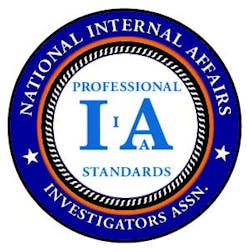1982 in the City of Montgomery, Alabama, an incident between police and citizens occurred on Todd road. What happened became a matter of controversy. One rendition was police officers believed that there was drug activity occurring at the location and police initiated a raid. Another was family was gathering for a funeral of a deceased relative. Yet another was two detectives were looking for a missing person at the residence. In any case while they were there, officers were allegedly attacked, taken hostage and beaten until back up officers arrived. During the ensuing melee a police officer was shot and numerous persons were arrested. There were allegations of assault and torture. It became known as the Todd Road incident.
At trial defendants sought to obtain testimony that would show misconduct of the officers during the incident and the follow up investigation. Officer Benjamin and Officer Wilkes were subpoenaed by the defense to testify in the case regarding the investigation. Once on the stand both officers refused to answer questions regarding the investigation because of their right to the protection of the Fifth Amendment.
The following day Mayor Emory Folmar ordered the officers to the district attorney's office to be questioned and reveal their knowledge of the case. The district attorney refused to question them that due to the fact officer's testimony would be inadmissible because immunity would be attached. The officers were immediately suspended and placed on administrative leave with pay.
On November 21, Officer Hicken was subpoenaed to the trial of another defendant. Hicken took the stand and refused to answer questions by anyone other than the district attorney. In an unusual move Mayor Folmar was ordered to take the stand by the presiding judge. Mayor Folmar withdrew the initial order but stated:
"If this Honorable Court calls Sergeant Benjamin or Sergeant Hicken to this stand and they do not tell everything they know about this case to the best of their ability and the full truth, I will fire them right this minute." (785 F.2d 959; 1986 U.S. App.)
Neither officer testified that day. Two days later, the officers were called back to take the stand and testify for the defense. Both officers told the court they would testify but only because they were ordered to do so by Mayor Folmar. Their testimony was not accepted and Mayor Folmar fired both officers. The officers were again called to the stand, and they refused to testify citing the 5th Amendment.
The officers then filed a 42 U.S.C.S. 1983 for wrongful termination. A bench trial was held and judgment for the officers was awarded. The basis was that the officers were terminated because they refused to testify by utilizing the protection of the 5th amendment.
The City of Montgomery appealed and the appellate court reversed the decision. The decision was based on the following: "In ruling on the officers' section 1983 action, the federal district court held that the state's right to obtain testimony from police officers outweighed the officers' Fifth Amendment rights." (785 F.2d 959; 1986 U.S. App.)
The officers appealed to the United States Court of Appeals for the Eleventh Circuit. In its examination of the case the court reviewed Garrity v. New Jersey, 385 U.S. 493, 87 S. Ct. 616, 17 L. Ed. 2d 562 (1967). In Garrity it was held that officers could not be coerced into giving statements by the fear of losing employment. Then in Gardner v. Broderick, 392 U.S. 273, 88 S. Ct. 1913, 20 L. Ed. 2d 1082 (1968), "The Supreme Court held that Gardner "was discharged from office, not for failure to answer relevant questions about his official duties, but for refusal to waive a constitutional right." 392 U.S. at 278, 88 S. Ct. at 1916".
The City of Montgomery contended that the officers must testify in court as a condition of employment. Testimony is expected from police officers. The City of Montgomery could not show in policies that officers are required to testify in court for a criminal defendant.
In this case the court made a strong statement that if officers in this case were to testify "it would allow criminal defendants to provide police officers with immunity whenever they called the officers as witnesses, thus transferring control of Garrity-type use immunity from police officials to counsel for criminal defendants." "...moreover, Appellees position would allow criminal defendants to wield the tool of use immunity, normally denied to defendants." United States v. Thevis, 665 F.2d 616, 638-41 (5th Cir. Unit B), cert. denied, 459 U.S. 825, 103 S. Ct. 57, 74 L. Ed. 2d 61 (1982).
When the officers were brought to the stand they were not in a disciplinary action; they had not been ordered to answer questions under fear of dismissal. If they had testified, their testimony would not be considered as coerced and statements may have been used against them in criminal proceedings.
The City of Montgomery contended that there were two provisions within police department regulations. One was that officers would not be involved in an act that could be construed to be obstruction of justice. The second was that officers could not interfere with the criminal justice system. The court viewed both as not applicable to the Garrity decision.
The decision was clear from the 11th circuit. When the officers were ordered to testify in the criminal trial they were coerced to testify. Although they told the court they were willing to testify they were still being ordered to do so.

Randy Rider
Randy Rider has been employed as a law enforcement officer for 32 years. He is still an active law enforcement officer serving in the capacity of training and internal affairs. Over the course of his career he has conducted hundreds of investigations concerning abuse, neglect, and use of force by police and corrections officers.
Lieutenant Rider was elected president of the National Internal Affairs Investigators Association in May of 2005. The association has a members employed in agencies throughout the United States and Canada. Lieutenant Rider is also a national instructor for the Public Agency Training Council, Indianapolis, Indiana.



